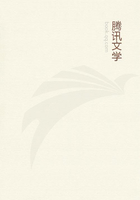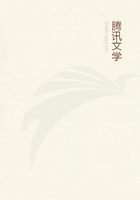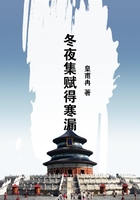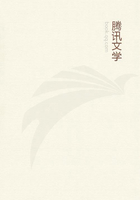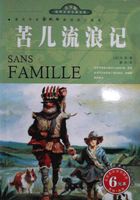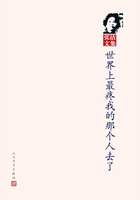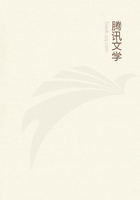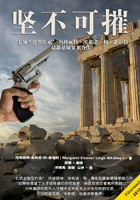The absolute idea, the abstract idea which "considered from the aspect of its unity with itself in intuition [Anschauen]", and which "in its own absolute truth resolves to let the moment of it s particularity or of initial determination and other-being, the immediate-idea, as its reflection, issue freely from itself as nature", this whole idea, which conducts itself in such a strange and baroque fashion, and which has caused the Hegelians such terrible headaches, is purely and simply abstraction -- i.e., the abstract thinker; abstraction which, taught by experience and enlightened as to its own truth, resolves under various conditions -- themselves false and still abstract -- to relinquish itself and to establish its other-being, the particular, the determinate, in place of its self-pervasion [Beisichsein], non-being, universality, and indeterminateness; to let nature, which is concealed within itself as a mere abstraction, as a thing of things, issue freely from itself -- i.e., to abandon abstractions and to take a look at nature, which exists free from abstraction. The abstract idea, which directly becomes intuition, is quite simply nothing more than abstract thought which relinquishes itself and decides to engage in intuiting.
This entire transition from logic to philosophy of nature is nothing more than the transition -- so difficult for the abstract thinker to effect, and hence described by him in sich a bizarre manner -- from abstracting to intuiting. The mystical feeling which drives the philosopher from abstract thinking to intuition is boredom, the longing for a content.
The man estranged from himself is also the thinker estranged from his essence -- i.e., from his natural and human essence. His thoughts are therefore fixed phantoms existing outside nature and man. In his Logic, Hegel has locked up all these phantoms, conceiving each of them firstly as negative -- i.e., as alienation of human thought -- and secondly as negation of the negation -- i.e., as supersession of this alienation, as a real expression of human thought. But since this negation of the negation is itself still trapped in estrangement, what this amounts to is in part a failure to move beyond the final stage, the stage of self-reference in alienation, which is the true existence of these phantoms.
[Marx note: That is, Hegel substitutes the act of abstraction revolving within itself for these fixed abstractions; in so doing he has the merit, first of all, of having revealed the source of all these inappropriate concepts which originally belonged to separate philosophers, of having combined them and of having created as the object of criticism the exhaustive range of abstraction rather than one particular abstraction. We shall later see why Hegel separates thought from the subject; but it is already clear that if man is not human, then the expression of his essential nature cannot be human, and therefore that thought itself could not be conceived as an expression of man's being, of man as a human and natural subject, with eyes, ears, etc., living in society, in the world, and in nature.]
Insofar as this abstraction apprehends itself and experiences an infinite boredom with itself, we find in Hegel an abandonment of abstract thought which moves solely within thought, which has no eyes, teeth, ears, anything, and a resolve to recognize nature as being and to go over to intuition.
But nature, too, taken abstractly, for itself, and fixed in its separation from man, is nothing for man. It goes without saying that the abstract thinker who decides on intuition, intuits nature abstractly. Just as nature lay enclosed in the thinker in a shape which even to him was shrouded and mysterious, as an absolute idea, a thing of thought, so what he allowed to come forth from himself was simply this abstract nature, nature as a thing of thought -- but with the significance now of being the other-being of thought, real, intuited nature as distinct from abstract thought. Or, to put it in human terms, the abstract thinker discovers from intuiting nature that the entities which he imagined he was creating out of nothing, out of pure abstraction, in a divine dialectic, as the pure products of the labor of thought living and moving within itself and never looking out into reality, are nothing more than abstractions from natural forms. The whole of nature only repeats to him in a sensuous, external form the abstractions of logic. He analyzes nature and these abstractions again. His intuiting of nature is therefore only the act of confirmation of his abstraction from the intuition of nature, a conscious re-enactment of the process by which he produced his abstraction. Thus, for example, Time is equated with Negativity referred to itself. In the natural form, superseded Movement as Matter corresponds to superseded Becoming as Being.
Light is the natural form of Reflection-in-itself. Body as Moon and Comet is the natural form of the antithesis which, according to the Logic, is the positive grounded upon itself and the negative grounded upon itself.
The Earth is the natural form of the logical ground, as the negative unity of the antithesis, etc.
Nature as nature -- i.e., insofar as it is sensuously distinct from the secret sense hidden within it -- nature separated and distinct from these abstractions is nothing, a nothing proving itself to be nothing, it is devoid of sense, or only has the sense of an externality to be superseded.
"In the finite-teleological view is to be found the correct premise that nature does not contain the absolute end within itself." Its end is the confirmation of abstraction.
"Nature has revealed itself as the idea in the form of other-being.
Since the idea in this form is the negative of itself, or external to itself, nature is not only external relative to this idea, but externality constitutes the form in which it exists as nature."
[ Hegel p.225 ]
"For us, mind has nature as its premise, since it is nature's truth and, therefore, its absolute primus. In this truth, nature has disappeared, and mind has yielded as the idea which has attained being-for-itself, whose object as well as subject is the concept.
This identity is absolute negativity, for, whereas in nature the concept has its perfect external objectivity, in this its alienation has been superseded and the concept has become identical with itself. It is this identity only in that it is a return from nature."
"Revelation, as the abstract idea, is unmediated transition to, the coming-to-be, nature; as the revelation of the mind which is free it is the establishing of nature as its own world; an establishing which, as reflection, is at the same time a presupposing of the world as independently existing nature. Revelation in its concept is the creation of nature as the mind's being, in which it procures the affirmation and truth of its freedom."
"The absolute is mind; this is the highest definition of the absolute."
[ p.392,393 ]

